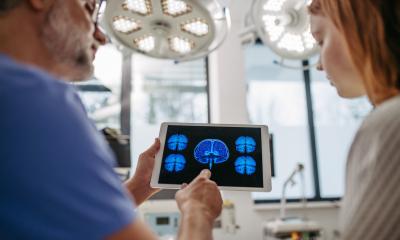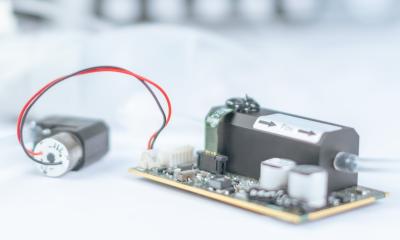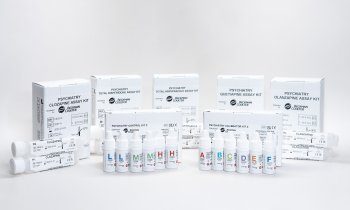US firm Sensys Medical relocates HQ to London
In a strategic move intended to enhance the global launch of its 'groundbreaking' diabetes monitoring device, set to help combat the 'worldwide epidemic', the US company Sensys Medical has chosen to relocate its world headquarters to the United Kingdom (UK).
Sensys Medical has developed a non-invasive blood glucose monitoring technology for painless home use that ‘is set to revolutionise the way in which diabetics monitor and manage their condition,’ the firm reports.
To manage their condition, insulin-dependent diabetics should test their blood glucose levels 6-10 times a day, by drawing a small amount of blood each time. Designed for use in diabetics own homes, the new non-invasive, blood glucose monitoring device, which consists of two small seven ounce components, can take an unlimited number of readings daily via infrared spectrometry technology.
The Sensys decision to move to the UK was prompted by the more open regulatory environment on offer and access to experts with an international market outlook. The UK is also seen as a gateway to markets in Europe and Asia.
Robert Curry, CEO of Sensys Medical, said that the move is ‘an exciting step for us as a business focused on the global diabetes epidemic. We believe that the UK represents the best hub to build a world-class medical device company. It provides us with crucial access to markets such as China, where it’s estimated that during the 21st century almost a million new cases of diabetes will occur each year. Our plan is to be well established commercially in Europe, the US and the Middle East over the next few years, and from that base to launch into India and China.’
The company was aided by UK Trade and Investment’s Global Entrepreneur Programme (GEP) in making the move. Sensys Medical Ltd (Sensys UK), has set up its interim headquarters in Mayfair, London, with a permanent development centre, operations and global business headquarters to be established in one of the English regions. Meetings have already taken place with economic development representatives from the various regions to accelerate its re-location and to access regionally focused resources.
Over the next few months, the firm anticipates hiring 20–30 people from within the UK.
Sensys has also been engaged with the UK Diabetes Research Network Coordinating Centre, based at Imperial College London. The Centre will provide a clinical trial site as part of the company’s pivotal clinical trial for regulatory approval by both the CE authorities and the US FDA.
Clinical trials of the technology are due to begin towards the end of 2009, with CE mark approval due by April of 2010. To accelerate the adoption of its breakthrough technology, Sensys UK reports that it has initiated an Adoption Review process with the NHS Technology Adoption Centre. ‘The process will yield a roadmap for bringing the non-invasive device to UK diabetics. It is hoped this will streamline the process for adoption in the UK to drive cost savings for the National Health Service.’
‘The company’s commitment to the UK has allowed it to take advantage of the favourable conditions we can offer, as well as giving us the chance to assist them in developing their international roll-out strategy, using the UK as a springboard for global growth,’ added Derek Goodwin, head of UKTI’s Global Entrepreneur Programme.
21.11.2008










